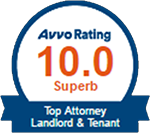Popping the AirBnB Balloon: Evicting Home-Sharing Tenants and Subtenants
On October 21, 2016, Governor Andrew Cuomo signed a law passed by legislators in Albany which imposes fines of up to $7,500.00 on anyone who advertises the occupancy or use of an apartment subject to the New York State Multiple Dwelling Law for short-term rentals on a home-sharing websites such as Airbnb or Wimdu. In response, the home-sharing website Airbnb has filed a federal lawsuit contending the new law would cause it “irreparable harm,” and claims the law violates their constitutional rights.
The rise of home-sharing websites and their use by New York renters who seek to turn their often rent stabilized rental apartments into mini-hotels raises many legal and practical issues for landlords, such as illegal subletting rights of tenants and property owner exposure to liability. In this article we will discuss the new law’s application, and some issues landlords should be aware of.
This recent change in the law highlights a new and growing trend of tenants looking to sublet their apartments to supplement their income and pay a share of their rent. Short-term subleases, especially those arranged without the Landlord’s knowledge and consent, present unique issues for Landlords.
Under the New York State Multiple Dwelling Law, generally, buildings with three or more apartments may only be used for “permanent resident purposes.” This means landlords, or individuals seeking to sublet, are prohibited by law from offering rentals for any period less than 30 days. Additionally, most Lease Agreements include a provision that the Tenant may not sublet the premises to another party without first obtaining the Landlord’s written permission. . Landlords should take such violations of leases seriously and consult an attorney to discuss options to correct the breach and evict the wrongdoer tenant.
Covenants, conditions, and restrictions (CC&R’s) of condominiums and proprietary leases and by-laws of cooperative apartments may also restrict the right to sublet. Where the right to sublet is restricted, and no notice of the sublet is provided to the landlord, tenants and subtenants may be evicted.
Landlords should further consider the effect of short-term rentals on their insurance policies. Homeowner’s policies could be invalidated by failing to notify the insurer of a tenant or subtenant. Landlord’s policies also may not provide coverage for claims brought by subtenants of whom the Landlord was unaware. Landlords should check their insurance policies to determine if they have coverage for claims by subtenants.
Landlords must be wary of illegal sublets and tenants who turn their apartments into illegal hotels. Fortunately, New York State eviction law can protect Landlords from the significant liability exposure caused by such tenants.
If you need to evict a tenant or subtenant, or have any questions or concerns about your property being used for home-sharing purposes, please contact our office.
James G. Dibbini & Associates, P.C., collectively, has over 20 years of experience in Landlord/tenant law. If you want have any questions about how home-sharing could affect your property, give us a call at (914) 965-1011, or email us at jdibbini@dibbinilaw.com to schedule a consultation.






